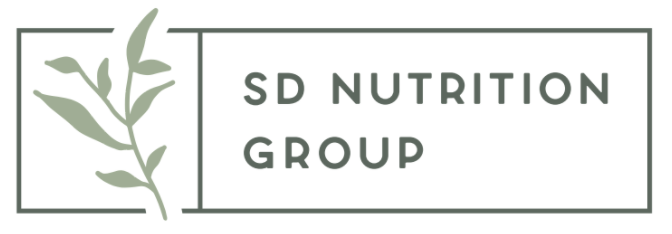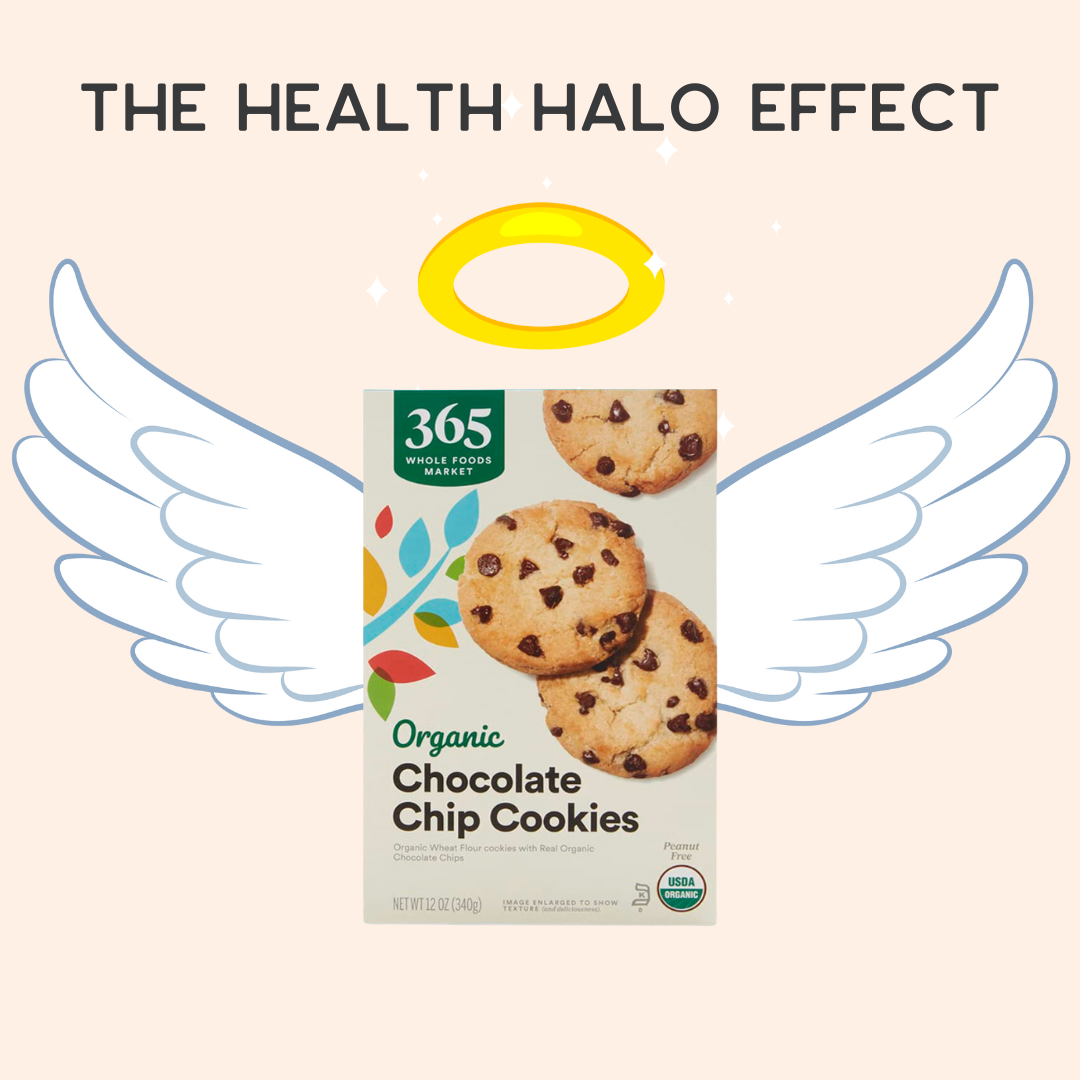The Health Halo Effect
Every day when we scroll through social media, watch TV, or go to the grocery store we see products left and right that are deemed to be “healthier.” Whether is this food labeled as “gluten free,” “all-natural,” or “clean ingredients” it is easy to assume that something with this type of label is automatically healthier. This is called the Health Halo Effect, or the idea that a specific product is “better for you” despite there being no evidence to confirm that the product has health-promoting benefits.
The health halo effect is the work of savvy marketers, knowing that as consumers, people are more likely to purchase something that they believe to be good for them, even if there is no real evidence to prove this.
Another thing to look our for when trying to detect something with the “health halo effect” is buzzwords or trendy health topics. Just because a granola bar is gluten free, doesn’t mean it has anything that is health promoting, unless of course you have Celiac’s Disease. However, if you enjoy a granola bar that is not gluten-free, by all means, eat it!
Examples of the Health Halo keep an eye out for:
Gluten-Free - gluten free has gotten a lot of interest over the last ten years, and many food companies have come out with gluten-free alternatives in order to hone in on trends. If you have celiacs disease or a gluten allergy, these new products are a great option to keep you safe. However, many people do not have a sensitivity to gluten and can even save a few cents as gluten-free products are often more expensive.
Organic - organic farmers and grocery chains all have different practices that they deem “organic.” There is very little regulation around labeling something as organic- however, these does not mean that these products are better for you or even provide more nutrients.
All Natural - similarly to organic, there really is not a hard and fast rule to what can and cannot be labeled as “all natural” - all natural by definition just means to exist in nature, which can be anything!
Refined Sugar Free - these products still allow for honey, agave, coconut sugar, etc to be used. However, due to fear mongering around white sugar, marketers are honing in on the fact that these products use alternative sugars.
Paleo or Whole 30 Compliant - these are two trending diets that food companies have noticed are gaining popularity. In order to make a few extra dollars, some companies and grocery chains have started offering paleo and/or Whole 30 branded products. Again- similar to the labels above, these do not necessarily promote health behaviors and sometimes don’t taste great either. More often than not, these products are more expensive then traditional foods as well.
The Bottom Line - It can be easy to get caught in the Health Halo Effect with so many different health and wellness trends that are seemingly everywhere. Many factors can play into your food choices, and these more often than not will change day-to-day. As non-diet dietitians, we believe that behaviors such as getting more sleep or adding veggies to your favorite dish can be great ways to improve your health, if that is a goal of yours. When it comes to food choices, we encourage you to challenge your inner food police and choose foods that not only make you feel good but foods that you also enjoy! Remember - if you want a cookie - have the cookie!

